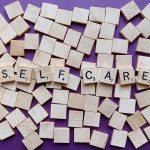Self-confidence is the cornerstone of personal growth and success. It’s the belief in your abilities, the inner strength that propels you forward, and the magnet that attracts opportunities and positive relationships into your life. While some people seem to exude self-confidence effortlessly, others struggle to find it within themselves. The good news is that self-confidence is not a fixed trait; it can be cultivated and strengthened over time.
Let’s explore ten practical tips to boost your self-confidence today.
1. Practice Self-Compassion
Before delving into external factors that can boost your self-confidence, it’s crucial to start with internal self-compassion. Often, our lack of self-confidence is rooted in self-criticism and negative self-talk. We are our own harshest critics, quick to highlight our flaws and shortcomings. To boost your self-confidence, begin by treating yourself with kindness and understanding.
Research shows that self-compassion is strongly linked to higher levels of self-confidence and overall well-being. Instead of berating yourself for mistakes or imperfections, practice self-compassion by acknowledging that nobody is perfect, and everyone makes errors. Treat yourself as you would a friend in times of struggle, offering words of encouragement and support. When you embrace self-compassion, you’ll gradually build a healthier self-image, which is the foundation of self-confidence.
2. Set Achievable Goals
Setting and achieving goals can significantly enhance your self-confidence. However, it’s essential to set realistic and attainable goals. When you consistently reach your targets, you build evidence of your competence and capabilities.
Start with small, manageable goals and progressively work your way up to more significant challenges. This incremental approach allows you to experience success regularly, reinforcing your belief in your abilities. As you achieve your goals, take time to celebrate your victories. Recognizing your accomplishments, no matter how small, can provide a significant confidence boost.
3. Improve Your Knowledge and Skills
One of the most effective ways to boost self-confidence is by acquiring new knowledge and skills. Whether you’re learning a new language, honing a craft, or mastering a particular subject, the act of continuous learning not only expands your capabilities but also provides a sense of achievement.
Identify areas in your life where you’d like to excel and commit to acquiring the necessary knowledge and skills. Whether through formal education, online courses, or self-study, investing in your personal growth will undoubtedly boost your self-confidence. The more you know and the more you can do, the greater your belief in your abilities will become.
4. Dress for Success
The way you present yourself has a profound impact on your self-confidence. Dressing well and grooming yourself can make you feel more self-assured. When you look good, you feel good, and this boost in self-esteem can lead to increased self-confidence.
Take the time to choose outfits that make you feel confident and comfortable. Dressing appropriately for various situations can give you a sense of control and readiness. It’s not about conforming to fashion standards but rather about expressing yourself and feeling good in your own skin.
5. Practice Positive Self-Talk
Your inner dialogue plays a crucial role in shaping your self-confidence. Negative self-talk can be a significant barrier to building self-assurance. To counter this, practice positive self-talk by challenging and reframing negative thoughts.
When you catch yourself thinking, “I can’t do this,” replace it with, “I can learn how to do this with practice and effort.” Recognize the power of your thoughts in influencing your emotions and behavior. Over time, this practice can help you develop a more optimistic and self-assured mindset.
6. Step Out of Your Comfort Zone
Self-confidence thrives outside of your comfort zone. While it may feel safe to stick to what you know and avoid risks, personal growth and self-confidence flourish when you push your boundaries.
Start by identifying areas where you tend to play it safe and challenge yourself to step outside that comfort zone. It could be volunteering for a project at work that you’re not entirely comfortable with or trying a new hobby. Each time you face a new challenge and overcome it, your self-confidence grows. Embrace the discomfort as a sign that you’re expanding your horizons and becoming a more confident person.
7. Surround Yourself with Positive People
Your social circle has a significant impact on your self-confidence. Negative and unsupportive people can undermine your belief in yourself, while positive and encouraging individuals can lift you up and help you thrive.
Evaluate your relationships and make an effort to surround yourself with people who believe in you and support your goals. Seek out friends, mentors, or support groups that share your interests and values. Engaging with positive people can provide validation, encouragement, and a strong sense of community, all of which contribute to greater self-confidence.
8. Keep a Success Journal
A success journal is a powerful tool for boosting self-confidence. It involves documenting your achievements, no matter how small, on a regular basis. This practice serves as a tangible reminder of your capabilities and accomplishments.
Start by keeping a journal where you record your daily or weekly achievements. These can be professional accomplishments, personal goals, or acts of kindness. When you’re feeling self-doubt, review your success journal to remind yourself of all the things you’ve achieved in the past. This practice can help you build a positive self-image and reinforce your self-confidence.
9. Practice Mindfulness and Visualization
Mindfulness and visualization techniques can help you cultivate self-confidence by calming your mind and focusing on positive outcomes. Mindfulness involves being fully present in the moment and observing your thoughts without judgment. This practice can reduce anxiety and self-doubt, creating space for self-confidence to grow.
Visualization, on the other hand, involves mentally rehearsing successful outcomes and imagining yourself confidently handling various situations. By repeatedly visualizing yourself as a confident and capable person, you begin to create a mental blueprint for self-confidence.
10. Seek Professional Help if Needed
If you’ve struggled with low self-confidence for an extended period, it may be beneficial to seek professional help. A therapist or counselor can provide guidance and support in addressing the underlying causes of your self-doubt and help you develop strategies for building self-confidence.
Therapy can be particularly helpful if your lack of self-confidence is related to past trauma, negative self-beliefs, or anxiety disorders. Remember that seeking help is a sign of strength, not weakness, and can be a crucial step on your journey to greater self-confidence.
Conclusion
Self-confidence is not an innate trait; it’s a skill that can be developed and strengthened through practice and self-awareness. By incorporating these ten practical tips into your daily life, you can boost your self-confidence and unlock your full potential.
Remember that building self-confidence is an ongoing journey, and it’s okay to have moments of self-doubt along the way. With determination, self-compassion, and a commitment to personal growth, you can become a more self-confident and empowered individual. So, start implementing these tips today, and watch your self-confidence soar.




